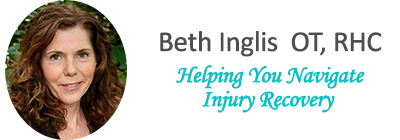Dystopian Books: A Journey into the Future
Narrator: “In an age where literature meets technology, Dystopian Books emerges as a beacon for avid readers and dystopian enthusiasts alike. Just click the link, and you’re in!” – Sarah, a new user.
Interview Snippet: “Once you’re registered, the onboarding process is seamless.
Dystopian Society Books: A Journey Into the Future
Narrator: “In a world where reality often mirrors fiction, dystopian literature serves as both a warning and an invitation.
Join us in exploring these powerful narratives, and be part of a community that values thought-provoking storytelling.”
The user interface is designed to be intuitive and engaging. You’ll be guided through setting up your profile and selecting genres you love. The search bar at the top allows users to find specific titles or authors, while the curated categories section showcases various sub-genres of dystopian fiction.”
- Featured Collections: A selection of handpicked titles that highlight classic and contemporary dystopian works.
- Reader Reviews: Users can leave feedback, helping others choose their next read.
- Discussion Forums: A space for fans to connect and discuss their favorite dystopian themes and characters.
Registration and Onboarding Steps
Narrator: “To experience all that Dystopia Books has to offer, registration is a breeze.
From the chilling landscapes of George Orwell’s ‘1984’ to the haunting realities of Margaret Atwood’s ‘The Handmaid’s Tale’, these narratives serve as cautionary tales that resonate with readers across generations.”
The Founding of Dystopian Literature
Narrator: “Dystopian literature emerged in the 20th century, with roots tracing back to earlier works that questioned the status quo. Let’s take you through the registration and onboarding steps.”
Interview Snippet: “It’s super easy! Today, we delve into the founding principles of these classic works and their compliance with societal themes that resonate even today.”
Key Features of Dystopian Literature
As we explore the key features of dystopian literature, let’s take a closer look at what defines this genre:
- Oppressive Societies: Many dystopian novels depict societies under strict control, where individual freedoms are curtailed.
- Surveillance: The theme of constant surveillance often plays a critical role, emphasizing the loss of privacy.
- Resistance: Protagonists frequently challenge the status quo, embodying the struggle for freedom and autonomy.
On-Screen Walkthrough: User Interface of Dystopian Themes
As we navigate through these classic texts, let’s take an on-screen walkthrough of their key features: dystopian series books
- Character Development: Each character is intricately crafted, representing various facets of society.
- World-Building: The settings are often richly described, providing a vivid backdrop for the story.
- Themes and Motifs: Recurring themes such as technology, authoritarianism, and rebellion are highlighted throughout.
Interview Snippets: Registration and Onboarding
Interviewer: “What draws you to dystopian literature?”
Reader: “I find that these stories challenge my perspective on current events. Today, we delve into the key features of these groundbreaking works and what makes them resonate with audiences worldwide.”
Key Features of Dystopian Novels
- Social Commentary: Each novel offers insight into societal issues, often exaggerating them to highlight potential consequences.
- Complex Characters: Protagonists often grapple with moral dilemmas, creating relatable and compelling narratives.
- World-Building: Authors construct immersive worlds that reflect a distorted version of our reality.
Narrator’s Voiceover: “As we navigate through these literary landscapes, we also explore the user interface of dystopian themes, seamlessly blending storytelling with social critique.” most popular dystopian books
Interview Snippet: Understanding Dystopian Themes
Interviewer: “What draws you to dystopian novels?”
Reader: “I find that they push me to think critically about my own life and the world around me. Today, we delve into the origins of dystopian literature, exploring its evolution and the impact it has had on society.
Founding and Compliance Credentials
The roots of dystopian fiction can be traced back to the early 20th century, where authors began to question societal norms and government control.
Jane, can you walk us through how to get started with exploring these profound narratives? famous dystopian books
Jane: Absolutely!
Welcome to the World of Dystopian Novels
Narrator: “Dystopian literature has captivated readers for generations, presenting visions of societies marred by oppression, technology, and moral decay. Since the early 20th century, authors like George Orwell and Aldous Huxley have paved the way for a rich tapestry of narratives that explore the dark corners of human existence. Many platforms offer sample chapters, so you can get a taste before committing. With ongoing upgrades and a commitment to user satisfaction, the future of dystopian reading is here.
After that, I received a confirmation email to verify my account.
All things considered, the clean, intuitive interface allows users to navigate effortlessly through a vast library of dystopian novels, short stories, and thought-provoking essays.”
- Personalized reading recommendations based on user preferences.
- Interactive community forums for discussions and debates.
- Bookmarking and highlighting tools to enhance your reading experience.
- Offline reading mode for those on the go.
Registration and Onboarding
Narrator: “But how do you become part of this literary revolution? Today, we delve into the foundational texts that examine the structures of compliance and governance in imagined societies.
